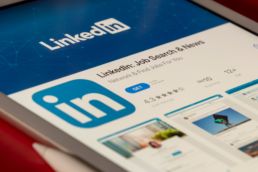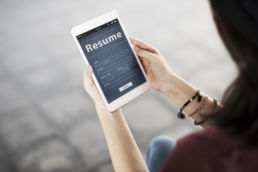“Congratulations – you’ve won an interview! Now what? Take the time to prepare well to ensure a polished performance.”
Step One: Research the company and the role to ensure you are speaking credibly in the interview
Use the internet and any connections you have to the business to familiarise yourself with the company’s products, values, organisational structure and strategic priorities. The more armed with information you are, the better you will be able to answer their questions, and position yourself as a solution to their needs.
Step two: Re-read your resume and hone an understanding of your experience, key achievements and skills
Be ready to answer the question “Tell me about yourself” in a way that enables them to see your relevance and potential fit for their organisation. Brush up on your career achievements to-date, know your key transferable skills, and be ready to give your 30 second “elevator pitch” on why you are the best candidate for the role.
Step 3: Familiarise yourself with modern interview techniques and refine your interview skills
Today many large organisations are using behavioural interview techniques to assess candidate’s suitability to the role. In these forums you will be asked to describe a situation or time where you have had to use a particular skill they see as essential to the role. For example: “Can you tell me about a time when you managed multiple tasks at once? How did you go about it and what was the result?”. When responding to a behavioural interview question you need to be very specific in your answer and follow the “STAR” approach, which stands for describing the Situation or Task, the Actions you took, and the Result. For example an answer (fictional) to the question above may be:
Situation/Task:
“When I was working as a Personnel Manager in the ADF’s Recruitment Division I was tasked with overseeing the annual recruitment fairs across the South East region. This required me to manage 6 key events simultaneously all occurring across Brisbane on the same day.”
Actions:
“To ensure these went off smoothly I started by implementing a detailed spreadsheet for the event that incorporated relevant milestones and deadlines. I also implemented a schedule of weekly meetings with each of the team members involved in the events, where we met and discussed weekly progression and any potential issues or progress roadblocks that could affect event delivery. Through this we were able to …etc…”
Result:
“As a result of the planning, systems and meetings I had implemented, each of the events occurred smoothly attracting in total more than 2000 attendees at each event. Management’s feedback has been that the professionalism of the events has also positively impacted on ADF’s public profile and requested that I take the lead managing the events again in following years.”
You may want to prepare a bank of relevant STAR examples for common criteria for your target role.
Step 4: Finish on Strong Note
Almost all interviews end by offering the individual the opportunity to ask any questions. This is an ideal time to end on a positive note through effective preparation that shows your professionalism and suitability for the role. Take the time before the interview to prepare well thought out questions for this segment of the interview. You may want to ask about potential reporting or team structures, you may want to enquire what they see the key priorities of the role being in the first 3-6 months, perhaps you may like to know more about the leadership style of the business, or the next stages in the selection process. The only areas of discussion to avoid at this point are questions about salary or conditions, which may be better negotiated, in the later stages of the recruitment process.
Finally if possible collect the interviewer’s business card so you can send a follow up email the next day thanking them for their time. This makes a strong impression and sends a positive message about your professionalism and follow through. If you are worried about your performance at interview you may wish to seek the support of an interview coach who can help you refine your skills and hone your delivery.
Related Posts
Military-to-Civilian Resume Writing | Video
Writing a resume for the first time when leaving the Australian Defence Force can be difficult. This video provides…
Civilian Labour Market Resources for Defence to Civilian Transition
When leaving the Australian Defence Force it's important you undertake effective career...
Applying for Australian Public Sector Roles – Tips for ADF
Applying for Public Sector Roles can be difficult if you have not experienced the recruitment and...
Potential Jobs For Ex-Defence & How to Find Them
Many military personnel worry that there are no jobs for ex-Defence. The good news is this is not the...
Shedding The Military Brand
When leaving the Defence it’s important to understand that your ‘brand’ is more than your history in the Defence force.…
LinkedIn Tips for Military-to-Civilian Transition
For many members leaving the Australian Defence Force, LinkedIn is a new technology that they...
Finding a Good Military Resume Writer
Finding a Military Resume Writer who can translate your Australian Defence Force experience into terminology that the…
Military Resumes – What to write in a civilian resume
When it comes time to leave the Australian Defence Force a lot of Ex-Defence members...
Why We Are a Proud ADF Reserves Supporter
Working every week with Defence members during career change and transition we felt really strongly about adding our…
Swapping Hats – Defence to Civilian Career Transition
Tips for transitioning from a military career to the civilian sector. Useful for ADF members interested...
Job Search for Ex-Defence Personnel – Resources
If you’ve been in the Australian Defence Force for a large portion of your career, the job market...
Translating Your Defence Career To A Civilian Resume
One of the biggest challenges for most Defence personnel is how to translate their military...
Call us, we'd love to hear from you.
Find out how we can design a program to meet your needs.
Not familiar with outplacement? Learn more in our information section – what is outplacement?
Call us, we'd love tohear from you.
Find out how we can design a program to meet your needs.
Not familiar with outplacement? Learn more in our information section – what is outplacement?











